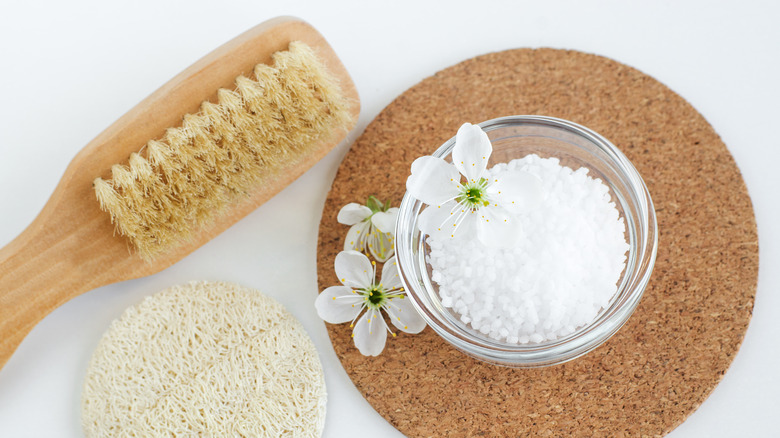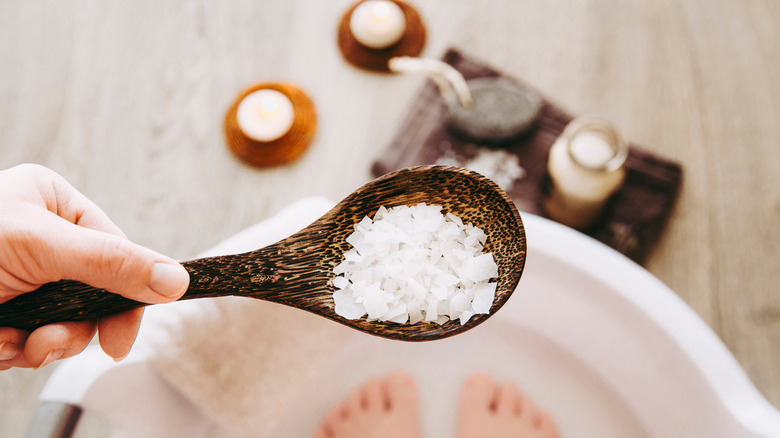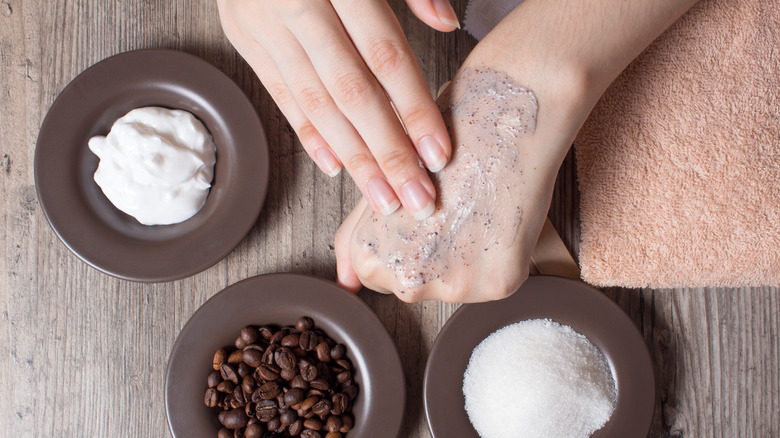Are There Benefits To Washing Your Face In Salt Water?
A 2019 study published in the journal Frontiers in Medicine notes that up to 70% of women and up to 60% of men report having sensitive skin of some sort. If you are part of this group, you might have difficulty finding the right skincare remedies. According to Healthline, various home remedies exist to help with common skin disorders. However, in many cases, there's very little scientific backing, despite users attesting to their effectiveness.
Using salt on the skin is one such remedy. Salt bathing is an age-old therapeutic practice, and for some people, it's a ritual rooted in their culture. Others may be interested in adding this to their face and body skincare routines. Whether you want to explore the dermatologic effects of salt or you're eager to enjoy the cultural experience associated with salt baths, you'll find many benefits awaiting you. Let's dive into the details of how salt water can be used for skincare, the best ways to add it to your routine, and the possible side effects.
Benefits of salt water on the skin
According to WebMD, dead sea salts have high magnesium levels that might help various skin conditions. This claim is detailed in a 2012 study published in the International Journal of Cosmetic Science. The study notes that using salts on the skin — especially Epsom salts — can enhance skin softening and exfoliation while relieving muscle tension. This is thanks to the various minerals in the salts, such as calcium, magnesium, and potassium, per the study. Healthline also links mineral baths — especially those involving Himalayan salt — with various dermatology benefits for those with psoriasis or eczema. These help with common symptoms like scaling, redness, or irritation. More so, taking mineral baths can help manage allergic skin reactions, per Healthline.
The National Eczema Association recommends that people experiencing severe eczema flare-ups add a cup of table salt to bath water for relief. Akin to eczema, psoriasis is another uncomfortable condition that affects the skin in patches and causes rashes (via the American Academy of Dermatology Association). Swimming in salt water, which is rich in anti-inflammation agents, can help improve the appearance of psoriasis-affected skin patches, according to WebMD.
The correct way to use salt water
Due to the lack of scientific evidence behind the effectiveness of salt in skincare routines, it's crucial to consult a dermatologist beforehand to determine how to deploy salts in your skincare routine. As a general guide, MedicalNewsToday advises using salt water one to two times a week. However, to prevent any allergic reactions, it's best to apply a small amount of saltwater to your skin to see how it reacts first. Discontinue using saltwater if the skin shows irritation or flares up.
As for dosage, Healthline says two cups of Epsom salt poured into running water can suffice for a detox bath. A single cup of Epsom salt, sea salt, or table salt can work for skin inflammation conditions like eczema, psoriasis, contact dermatitis, and athlete's foot.
Regarding side effects, the American Academy of Dermatology Association reveals that using exfoliants like retinol or benzoyl peroxide products in your saltwater therapy can make the skin more sensitive. The association also advises against exfoliating skin that is sunburnt, broken, or irritated.



